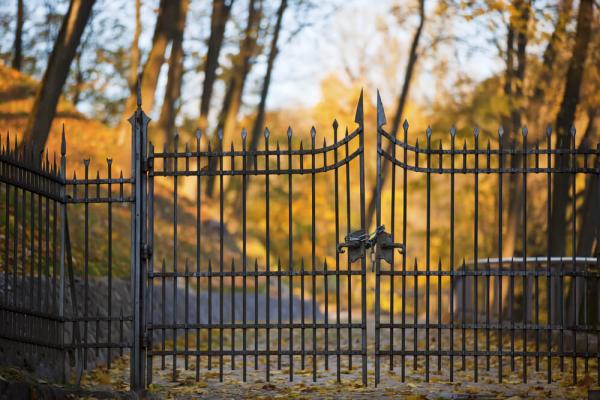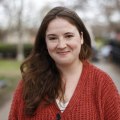Want to get weekly reading recommendations from Sojourners editors? Sign up for our newsletter here.
When I interviewed Grammy winner Brandi Carlile for Sojourners, she kept referring to her home in rural Washington as a “compound,” which I found both confusing and endearing. It makes it sound like she lives underground, surrounded by canned food, scrappy weaponry, and thick, concrete, zombie-blocking walls. But I know from reading her memoir and watching her Instagram stories that her “compound” is nothing like that. There’s a garden, fireside jam sessions, and lots of kids. Her compound couldn’t save her from nuclear fallout, but I reckon it does a good job keeping loneliness off the premises.
In a time of social distancing and mass migration, home has changed, so maybe it makes sense that our words for it evolve, too. Most of the articles below swirl around the concept of home. In “For Abolitionist Candidates, the Goal Is Building Community,” journalist Madison Muller writes about a chaplain who became a politician after talking to too many kids whose home was a jail cell. “We’re doing something really bad if children at the age of 17 are having the notion that they cannot function outside of a secure facility, outside of a cage,” said Nikkita Oliver, who’s running for Seattle City Council in November on an abolitionist platform.
Many of our institutions are in need of some good housekeeping. How can Gordon Conwell-Hamilton make its campus safer for Black students? How did patriarchal culture at Moody Bible College shape the way abuse is handled on campus? Not all homes are compounds, fortified against both external and internal dangers — an important thing to remember this Domestic Violence Awareness month. Fortunately, the stories below highlight the educators, politicians, and writers who are trying to change that.
1. Brandi Carlile’s Radical Gospel of Gentleness
“When a person who wrote an album about forgiveness goes on to write a ballad about someone going to hell, it’s hard not to pay attention.”By Jenna Barnett via sojo.net.
2. They Went to Bible College to Deepen Their Faith. Then They Were Assaulted — and Blamed for It.
“There are wolves who see our community like a bunch of dumb sheep.” By Becca Andrews via Mother Jones.
3. Teaching Anti-Racism Won’t Shame Kids. It Will Empower Them
Opponents of critical race theory claim such learning is racist, but Freedom Schools tell a different story. By Adam Russell Taylor via sojo.net.
4. In 2019, Almost All of Facebook’s Top Christian Pages Were Run By Foreign Troll Farms
“Collectively, their Christian Facebook pages reach about 75 million users a month — an audience 20 times the size of the next largest Christian Facebook page.” By Tyler Huckabee via Relevant.
5. Christians Can’t Ignore the Border Crisis in Our Hearts
“White supremacy has been the prevailing logic of our immigration process, and white Americans are only able to clearly see its failures when it fails someone like them.” By Michael Woolf via sojo.net.
6. Venom, Unleashed
After his eponymous 2018 film wowed audiences, the alien symbiote is back for a sequel and hungrier than ever. So we took him out for dinner. By Miles Surrey via The Ringer.
7. For Abolitionist Candidates, the Goal Is Building Community
Protests put abolition in the public imagination; candidates are putting it on the ballot. By Madison Muller via sojo.net.
8. Your Friend Group Should Look Like the Cast of a Twenty-Something Drama and Other Myths About Millenial Friendship
Friendship is a shape-shifter — we’re constantly growing in and out, inviting in new bonds, and revisiting old ones. By Rainesford Stauffer via Catapult.
9. Seminary's Racism Deeper Than Black Professor's Layoff, Students Say
Students told administrators they could not “advocate or recommend Black students to get a degree or take classes at Gordon Conwell-Hamilton.” By Joshua Eaton via sojo.net.
10. The Lost Promise of Black Study
Even as they carve out space for Black scholarship, established universities remain deeply complicit in racial capitalism. By Andrew J. Douglas and Jared Loggins via the Boston Review.
Got something to say about what you're reading? We value your feedback!







